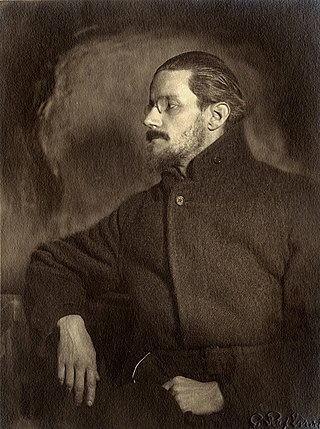
James Augustine Aloysius Joyce was an Irish novelist, poet and literary critic. He contributed to the modernist avant-garde movement and is regarded as one of the most influential and important writers of the 20th century. Joyce's novel Ulysses (1922) is a landmark in which the episodes of Homer's Odyssey are paralleled in a variety of literary styles, particularly stream of consciousness. Other well-known works are the short-story collection Dubliners (1914), and the novels A Portrait of the Artist as a Young Man (1916) and Finnegans Wake (1939). His other writings include three books of poetry, a play, letters, and occasional journalism.
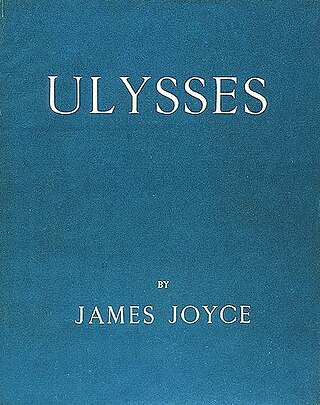
Ulysses is a modernist novel by the Irish writer James Joyce. Partially serialized in the American journal The Little Review from March 1918 to December 1920, the entire work was published in Paris by Sylvia Beach on 2 February 1922, Joyce's fortieth birthday. It is considered one of the most important works of modernist literature and has been called "a demonstration and summation of the entire movement".
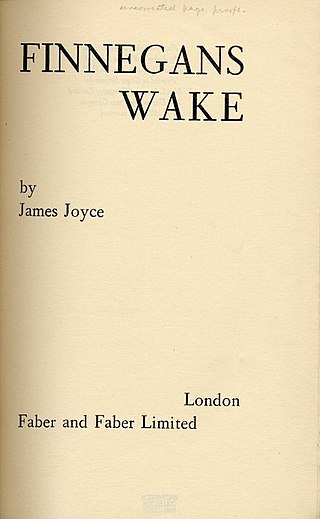
Finnegans Wake is a novel by the Irish writer James Joyce. It is known for its allusive and experimental style and its reputation as one of the most difficult works in literature. In 1924, it began to appear in installments under the title "fragments from Work in Progress". The final title was only revealed when the book was published on 4 May 1939.
In literary criticism, stream of consciousness is a narrative mode or method that attempts "to depict the multitudinous thoughts and feelings which pass through the mind" of a narrator. It is usually in the form of an interior monologue which is disjointed or has irregular punctuation. The term was first used in 1855 and was first applied to a literary technique in 1918. While critics have pointed to various literary precursors, it was not until the 20th century that this technique was fully developed by modernist writers such as Marcel Proust, James Joyce, Dorothy Richardson and Virginia Woolf.

Giambattista Vico was an Italian philosopher, rhetorician, historian, and jurist during the Italian Enlightenment. He criticized the expansion and development of modern rationalism, finding Cartesian analysis and other types of reductionism impractical to human life, and he was an apologist for classical antiquity and the Renaissance humanities, in addition to being the first expositor of the fundamentals of social science and of semiotics. He is recognised as one of the first Counter-Enlightenment figures in history.
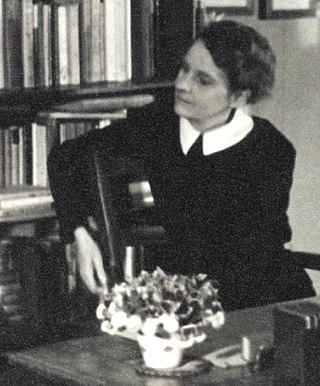
Sylvia Beach, born Nancy Woodbridge Beach, was an American-born bookseller and publisher who lived most of her life in Paris, where she was one of the leading expatriate figures between World War I and II.
Thomas MacGreevy was a pivotal figure in the history of Irish literary modernism. A poet, he was also director of the National Gallery of Ireland from 1950 to 1963 and served on the first Irish Arts Council.
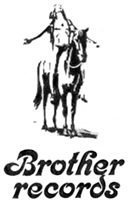
Brother Records, Inc. (BRI) is an American holding company and record label established in 1966 that owns the intellectual property rights of the Beach Boys, including "The Beach Boys" trademark. It was founded by brothers Brian, Carl and Dennis Wilson, and their cousin Mike Love. As of 2011, the corporation was equally owned by four shareholders and directors: Brian Wilson, Mike Love, Al Jardine, and the estate of Carl Wilson.

transition was an experimental literary journal that featured surrealist, expressionist, and Dada art and artists. It was founded in 1927 by Maria McDonald and her husband Eugene Jolas and published in Paris. They were later assisted by editors Elliot Paul, Robert Sage, and James Johnson Sweeney. After the Second World War, the publishing license of transition was transferred from the Jolases and McDonald to Georges Duthuit who capitalized the title to Transition (1948-1950) and changed its focus.

Molly Bloom is a fictional character in the 1922 novel Ulysses by James Joyce. The wife of main character Leopold Bloom, she roughly corresponds to Penelope in the Odyssey. The major difference between Molly and Penelope is that while Penelope is eternally faithful, Molly is not. Molly is having an affair with Hugh 'Blazes' Boylan. Molly, whose given name is Marion, was born in Gibraltar on 8 September 1870, the daughter of Major Tweedy, an Irish military officer, and Lunita Laredo, a Gibraltarian of Spanish descent. Molly and Leopold were married on 8 October 1888. She is the mother of Milly Bloom, who, at the age of 15, has left home to study photography. She is also the mother of Rudy Bloom, who died at the age of 11 days. In Dublin, Molly is an opera singer of some renown.
John George Eugène Jolas was a writer, translator and literary critic.
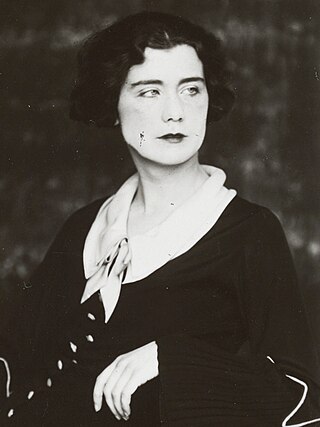
Lucia Anna Joyce was an Irish professional dancer and the daughter of Irish writer James Joyce and Nora Barnacle. Once treated by Swiss psychiatrist Carl Jung, Joyce was diagnosed as schizophrenic in the mid-1930s and institutionalized at the Burghölzli psychiatric clinic in Zurich. In 1951, she was transferred to St Andrew's Hospital in Northampton, where she remained until her death in 1982. She was the aunt of Stephen James Joyce.
Arthur Stuart Ahluwalia Stronge Gilbert was an English literary scholar and translator. Among his translations into English are works by Alexis de Tocqueville, Édouard Dujardin, André Malraux, Antoine de Saint-Exupéry, Georges Simenon, Jean Cocteau, Albert Camus, and Jean-Paul Sartre. He also assisted in the translation of James Joyce's Ulysses into French.

Frank Spencer Curtis Budgen was an English painter, writer and socialist activist acquainted with the author James Joyce.
United States v. One Book Called Ulysses, 5 F. Supp. 182, affirmed in United States v. One Book Entitled Ulysses by James Joyce , 72 F. 705 (1934) is a landmark decision of the United States District Court for the Southern District of New York in a case dealing with freedom of expression. At issue was whether James Joyce's 1922 novel Ulysses was obscene. In deciding it was not, District Court Judge John Munro Woolsey opened the door to importation and publication of serious works of literature that used coarse language or involved sexual subjects.
Disjecta: Miscellaneous Writings and a Dramatic Fragment is a collection of previously uncollected writings by Samuel Beckett, spanning his entire career. The title is derived from the Latin phrase "disjecta membra", meaning scattered remains or fragments, usually applied to written work. The essays appear in their original language of composition, as stipulated by Beckett, since the volume is intended for scholars who should be able to read several languages. Beckett himself did not value these pieces much, seeing them as "mere products of friendly obligation or economic need".
Victor Llona Gastañeta was a writer and translator, born in Lima (Peru) in 1886, who died in San Francisco in 1953.
Marcel Brion was a French essayist, literary critic, novelist, and historian.

Michael Vosse was an American journalist and A&M Records publicist. He is best known as assistant to Brian Wilson during the formation of the Beach Boys' Brother Records and the recording of the album Smile (1966–67). His work also included limited time serving as a television producer, and narrator.
Shakespeare and Company was an influential English-language bookstore in Paris founded by Sylvia Beach in 1919; Beach published James Joyce's 1922 novel Ulysses at the bookstore. The store closed in 1941.











